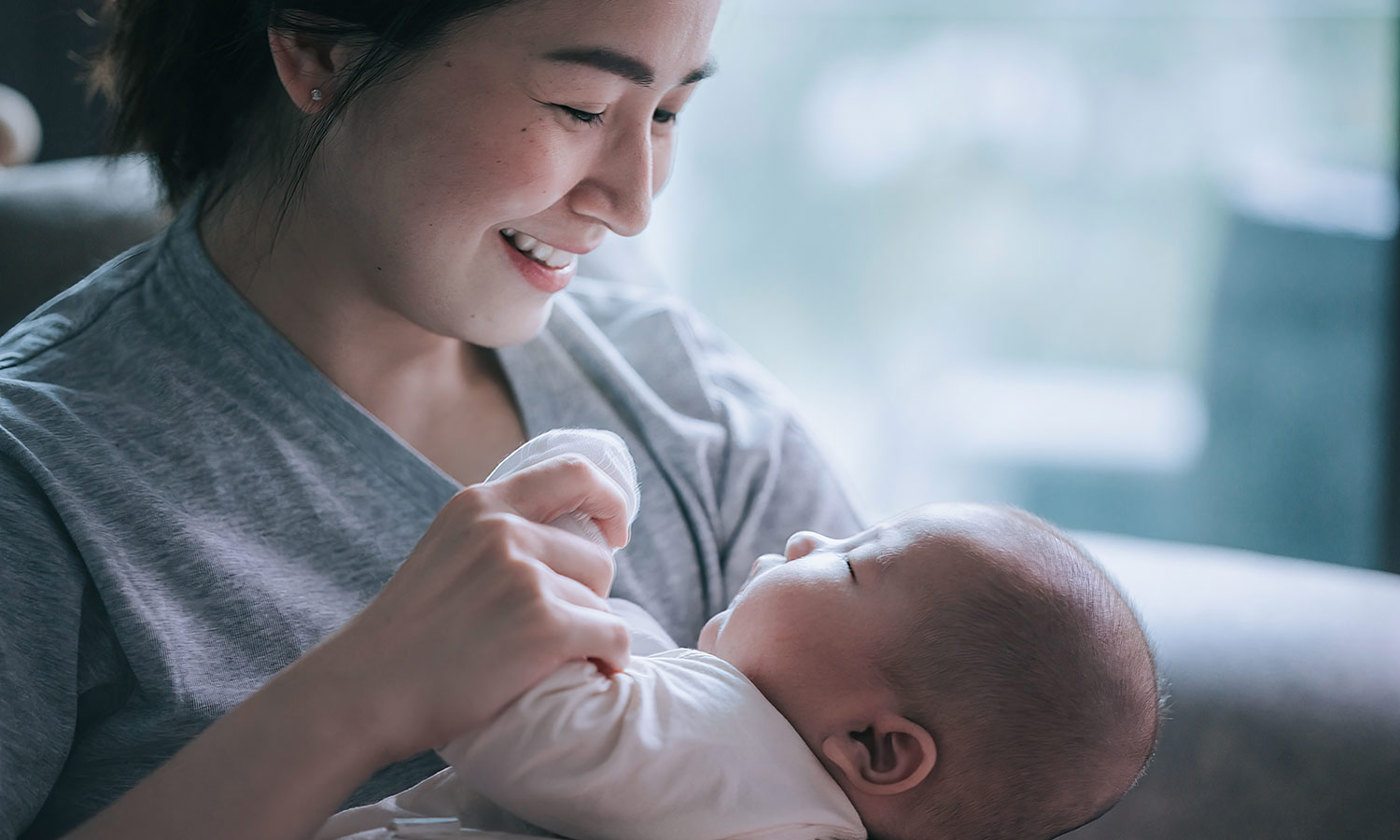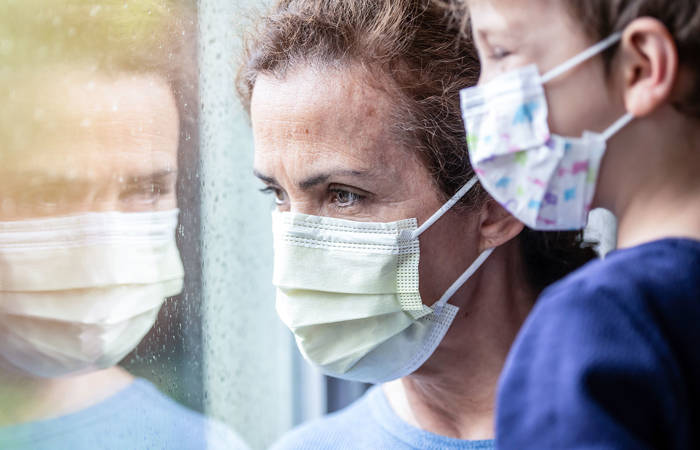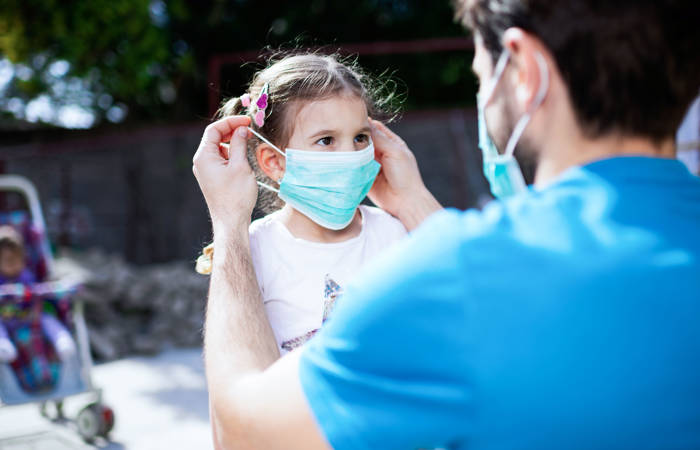Like what you see?
Sign up to receive more free parenting advice.
Thank you for subscribing to our newsletter!
Lifestyle

Credit: iStock.com/Edwin Tan
A study by the Murdoch Children’s Research Institute has found a third of women have experienced a huge impact on their maternal mental health and wellbeing. Women have also reported ongoing fatigue and parenting stress as a result of the pandemic.
In some cases, the pandemic has exacerbated underlying mental health difficulties and resulted in some women experiencing depression or anxiety for the very first time.
The COVID-19 pandemic has certainly disrupted the lives of everyone around the world, but there is no doubt much of the impact revolves around social and economic consequences for families.
The widespread disruption of COVID-19
According to Murdoch Children’s Professor Stephanie Brown, the pandemic not only led to widespread disruption to work, school and family life, it has also led to dramatic increases in anxiety, fatigue, irritability, sadness and loneliness.
“Much of the responsibility for remote schooling was shouldered by women. For some women, this meant giving up their paid job, taking leave without pay or reducing their hours of work significantly,” Professor Brown says.
“The challenges of remote learning were particularly acute for mothers of children experiencing neurodevelopmental conditions such as ADHD or autism, and for women whose children started at a new school just prior to the pandemic.”
The Mothers’ and Young People’s Study involved a survey of 418 women who answered questions between June and October 2020 during Victoria’s second lockdown.
A further 391 women took part in a second survey between January and April 2021 – a time when several restrictions were lifted.
But it was during Victoria’s second lockdown in mid-2020, that 53 percent of women surveyed claim to have experienced fatigue, 41 percent experienced anxiety, 33 percent irritability, 27 percent claim to have felt sad and 21 percent felt lonely.
By early 2021, the proportion of women reporting these difficulties had reduced, but remained higher than pre-pandemic levels. However, fatigue was least likely to have disappeared. In early 2021, almost half of women reported they were fatigued, down just slightly from the level reported in mid-2020.
The survey found two in five women reported problems in their relationship with their current and/or ex-partner. Almost one in 10 reported serious conflict between family members and about one in four sought health professional support on parenting.Professor Stephanie Brown
Stress and conflict rose during pandemic
Professor Brown claims stress at home and conflict between family members rose during the pandemic.
“The survey found two in five women reported problems in their relationship with their current and/or ex-partner. Almost one in 10 reported serious conflict between family members and about one in four sought health professional support on parenting,” Professor Brown says.
“The mental health strategies to support children and young people needed to extend to the whole family. It is important to provide multi-service frameworks that enable mothers, fathers, children and young people under 18 to receive appropriately tailored support.
“The pandemic has highlighted gaps in the current service delivery frameworks, especially for women with limited financial resources. These gaps have resulted in many women in need of mental health support being unable to access mental health services.”
The survey also revealed two in five women reported problems in their relationship with their current and/or ex-partner. Almost one in 10 reported serious conflict between family members and about one in four sought health professional support on parenting.
Other key findings included:
• 4 in 5 women in paid employment were stressed about work
• 1 in 4 women reported a loss of income due to the pandemic
• 1 in 10 women who were working prior to the pandemic were no longer working
• 3 in 4 women felt that COVID-19 negatively impacted their oldest child’s progress at school
• 1 in 4 women had concerns about housing stability
• 1 in 4 women reported more stress at home
Some of the women who responded to the online survey had this to say about the impact of the pandemic on their mental health:
“It’s been relentless, emotionally exhausting, trying my patience and temper. I’ve felt overwhelmed, worried about their learning abilities and independence. It’s been incredibly stressful … and detrimental to everyone’s mental health.”
“There are only 24 hours in the day. It is very hard to do everything, be the mother, supervisor, support, disciplinarian, fulltime worker, house keeper. Not having brain and physical space was hard.”
“I feel overwhelmed at the amount of caring duties I have in addition to my own work. Most of my day is spent looking after everyone else, and I am exhausted and fed up.”
Women experiencing mental health difficulties were almost four times more likely to delay their own medical care for financial reasons. Against this background, many women expressed a need for greater support with parenting and family responsibilities. A minority of women – around one in four - sought support from a health professional with regard to concerns about parenting.
Reasons for not receiving support from health professionals included:
• Prioritising counselling for their child/ren over their own mental health needs
• Psychologists closing their books to new clients/long waiting periods
• Not feeling comfortable or confident with telehealth
• Not being able to pay the bill.
Professor Brown says home isolation due to COVID-19 exposure is ongoing and some schools have resumed remote learning due to staff shortages and high infection rates.
“These continuing day-to-day effects of the pandemic are likely to have both short and longer-term impacts on women’s workforce participation, their own mental health and well-being and the mental health and well-being of other family members,” Professor Brown says.
The process of healing and recovery from the pandemic will take time. It is critical that the public health response includes a strong focus on maternal mental health in order to safeguard the health and wellbeing of the whole family.






